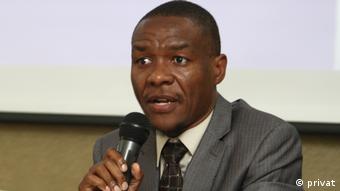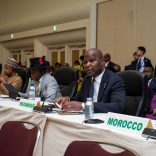Mozambique: H1 State revenue €2.3B, GDP down 3.9% - govt
Mozambique: The consequences of the “default”

DW (File photo)
Loss of partner confidence and devaluation of debt securities are some of the consequences that Mozambique faces, according to economist Humberto Zaqueu.
The Mozambican government officially entered into default on Friday after the end of the period of grace concerning the January US$60 million repayment on public debt issued in April last year. Maputo had already announced that it would not be able to comply with the obligation.
Also last week, the press reported that the authorities were already thinking about negotiating financing with the Paris Club, an international group of donors to indebted countries, with whom they still have one debt outstanding.
The Mozambican Finance Ministry has denied the news. Mozambique has already resorted to the Paris Club eight times, and the eighth loan, requested in 2011, is still outstanding.
DW Africa interviewed Humberto Zaqueu, an economist at the NGO Mozambican Debt Group on the parameters of Mozambique’s debt management,
DW Africa: What are the main consequences for Mozambique of non-compliance with its financial or default obligations?
Humberto Zaqueu (HZ): The first line of possible consequences has to do with the confidence of its partners, meaning creditors and investors. When a country goes into default, it means that there are no longer conditions for the partners to continue supporting the country, particularly those that give in the form of credits – and they are not so few. They question the country’s ability to repay loans.

And it’s worse when we talk about commercial credits, which is the case with the illicit credits [hidden loans] , which have been revealed to be practically all from European private banks. So financial institutions lose total confidence in the country, which means that the inflow of foreign currency into the country will decline more and more.
The second concern, in the case of debts that already exist and that are in the pipeline with European banks, is that, when we default, the debt securities in the possession of those institutions will depreciate. And nowadays we have another threat, which seems to be affecting Mozambique even though its politicians do not appreciate the fact, is that so-called voucher funds will come into action. These are the funds based on the tax havens that buy the securities at very low prices and control much of the Government’s assets. Now, from the perspective of foreign investment, this much is clear: no investor wants to go into a country where there is uncertainty over monetary policy. And Mozambique’s default creates an environment in which there is great uncertainty regarding the conduct of monetary policy.
DW Africa: What motivated the Government not to comply with the payment? Is it lack of money or a strategic issue?
HZ: It’s definitely a financial disability; there’s no money. There are sectors [of the state] that have not yet begun to implement the budget, simply because they do not have the money.
All the basic lines that provided the basic investment for the population were withdrawn. We are talking about sectors such as education, health. They are extraordinary cuts. And it seems we are walking in the opposite direction to what we needed. The defence minister has come out saying that unless we have the whole army on the front lines, the biggest concern we must face is to sending the military to work in agriculture. We’re getting to that point!
DW Africa: The press has reported on the Mozambican government’s intention to turn to the Paris Club for more financial support. The information has already been denied by the executive. Even so, what are the chances of Mozambique getting new support, given the Paris Club loan still being paid?
HZ: The chances are minimal, not just because we have a loan in the portfolio. There is that phrase that says owing is not bad, what is bad is not paying. Definitively, what is bad is the default and this is what will make the country less able to do well in negotiations, in new attempts to seek support outside the country. If we had a debt in our portfolio and we had the ability to pay, no creditor would close the doors. When we talk about Mozambique’s debt, if we compare it to the other countries, it is tiny, but for Mozambique it is an exorbitant amount, which is a total blow. We are talking about US$12 billion. What is going to make us unsuccessful is not necessarily the fact that we have a debt in the portfolio, but our inability to pay, now declared by default.












Leave a Reply
Be the First to Comment!
You must be logged in to post a comment.
You must be logged in to post a comment.